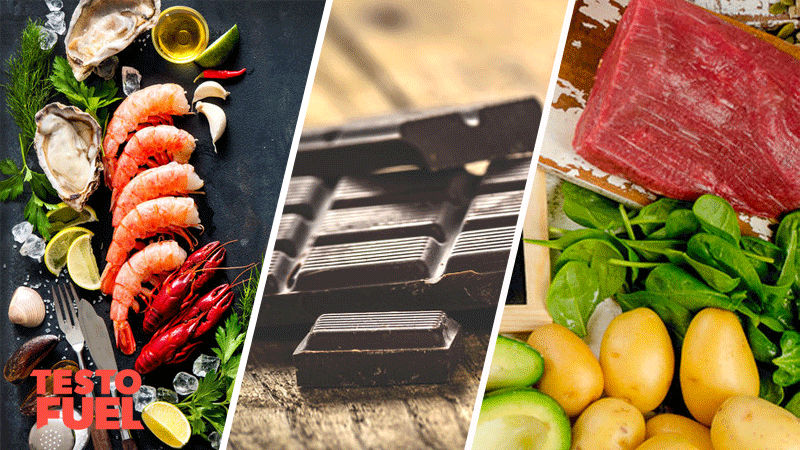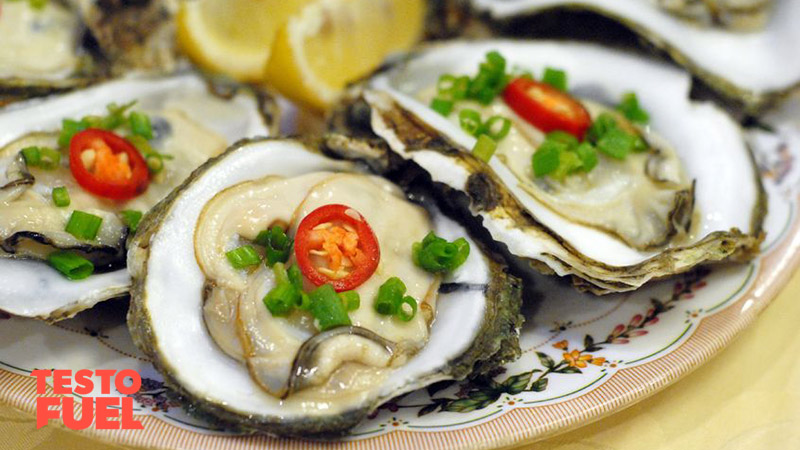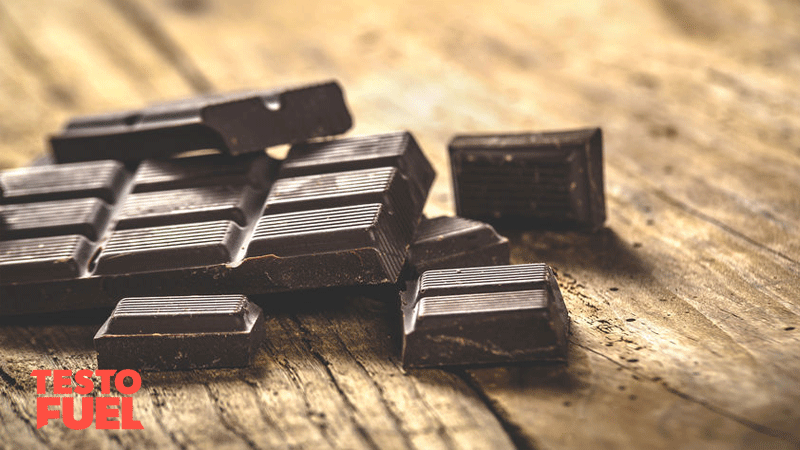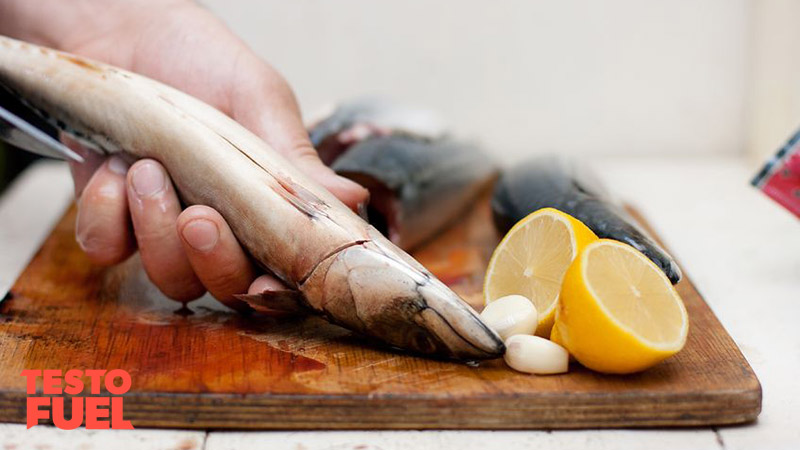TestoFuel Blog : Make Gains & Pack on the Muscle

Boosting your testosterone levels takes a holistic approach – strength training, lifestyle and eliminating stress are all important, but they’re useless without a good hormone-optimizing diet.
In this article we take a look at the very best testosterone-boosting vitamins and minerals. These are the must-haves if you want to hammer down some gains, ramp up your progress and tune in on single digit body fat.
Which nutrients are best for you?
Let’s take a look…
For optimal hormone levels you need to have a healthy base to work with. And the foundation for that base is nutrition. If your nutrition isn’t right it doesn’t matter how hard you work in the gym, you’ll just not achieve what you set out to.
To truly build muscle, keep fat at bay and maximize endurance, you need to feed your body with everything it needs.
As a naturally-occurring steroid hormone, testosterone (T) is responsible for regulating everything from your libido to your cardiovascular health.
When your levels are ticking over just right you’ll be at low risk from metabolic illness and weight gain, find it easier to build good quality muscle and you’ll feel invincible in the gym. Not only that, but your memory and concentration will improve and your libido will skyrocket.
But if you let those T levels start to drop you’ll find that muscle mass slides away from your frame and is replaced by man boobs and belly fat. Your endurance will seriously lack and your cognitive abilities will decrease dramatically.
And your sex life? The less said about that the better, because without the stimulating effects of your natural hormones, you libido and sex drive will be non-existent.
Once you hit the age of thirty your total and free T concentrations begin to decrease and the messages sent from your brain to your testes to produce more of the hormone begin to slow down.
All in all you’ll find a steady decrease of around 2% per year.
That means that by the age of 45, as many as 40% of men will be diagnosed with clinically low testosterone levels.
With the right exercise, physical activity plan and nutrition, you can reverse that low T and reinstate those health and performance-related benefits once again.
Low T isn’t the result of getting older. It’s purely down to the accumulated effects of lifestlye – and that gives you a great opportunity to make big changes. You can’t change your age, but you can change the way you live your life.
Age-related hormone decline may be decelerated through the management of health and lifestyle factors [1]
Here are the very best nutrients to support your testosterone goals and get your body back to the place it deserves…

If you track back through the hundreds of studies of men with hypogonadism, you’ll find that a remarkable amount have zinc deficiencies.
The reason why is that the essential mineral zinc might be needed to maintain the integrity of your androgen receptors(ARs) – the little baseball glove-like structures in your cells that catch testosterone from the blood and push it into the cell DNA.
Without these, your T just floats on by and never makes its way to your muscle or brain or whatever its destination was.
Foods that contain zinc include oysters, shrimp and other shellfish – in fact oysters are the best sources you’ll find as they’re almost 80% zinc.
You’ll also find it in beef, pork and chicken too. And if animal products aren’t your thing then you can get a hit of zinc from oats, seeds and nuts too.

Like zinc, magnesium is an essential mineral found naturally in foods. And again, you’ll find a strong link in the research between optimal magnesium levels and total T concentrations.
Found in foods such as oily fish, dark green vegetables, whole grains, almonds and dark chocolate, magnesium regulates a number of roles in the human body – from muscle and brain tissue, to bone and heart. It helps control:

Classed as the sixth steroid hormone due to its effects on androgens, vitamin D is a fat-soluble nutrient linked to a protective effect on both metabolic and cardiovascular diseases.
You’ll find vitamin D3 (the most potent of the family) in foods such as cod liver oil and oily fish, some fortified milk and of course the sun – vitamin D is often referred to as the sunshine vitamin.
Vitamin K2 is a fat-soluble nutrient found in green and cruciferous leafy vegetables, goose liver and egg yolks. There are a number of different forms of vitamin K but the one that seems to have the most potent effect on male hormone levels is menaquinone which is better known as K2.
K2 is closely related to vitamin D. This ‘tandem relationship’ helps to regulate metabolic health and ensure vitamin D gets taken up by the right tissues.
This water soluble vitamin not only ramps up your T levels but can help you use energy more efficiently and boost your mood too. You’ll find it in foods such as meats, eggs, vegetables and non-citrus fruits.
Low vitamin B6 levels are linked to:
Containing essential nutrients such as zinc, magnesium and vitamin D, TestoFuel is an all-natural testosterone booster and male hormone support complex.
Designed specifically to turbocharge your gains and take you from fat builder to bodybuilder, TestoFuel has the power to give you: